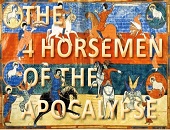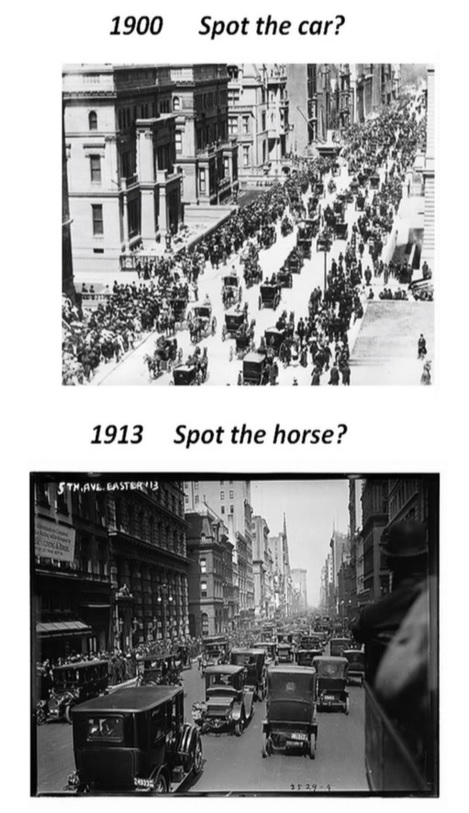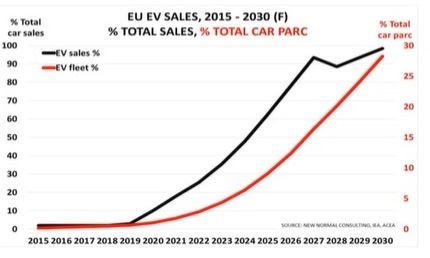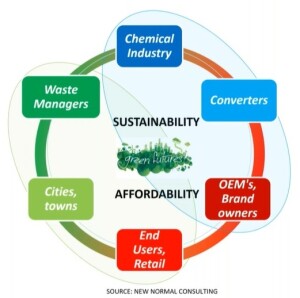Risks are multiplying and becoming more complex. The chemical industry is intrinsically connected to the economy. Can chemistry help solve the biggest crises facing us today?
On December 15, 2022, the American Chemical Society hosted a virtual webinar, “Chemistry and the Economy.” The moderator was Bill Carroll, principal of Carroll Applied Science, who spoke to Paul Hodges, chairman of the Swiss-based strategy consulting firm New Normal.
In speaking about risks, Hodges does not beat around the bush. He began with what he called “the four horsemen of the apocalypse.” He stated, “First there was the pandemic and associated supply chain chaos. Then this year we’re seeing inflation rise as Russia’s invasion of Ukraine creates a growing risk of energy, food and financial crises.”
At this point in the webinar, Carroll ran an audience poll. They responded: of all risks, the one of greatest concern (50 percent) was “war.”
The physical risks show up in the markets as high volatility, rising inflation, and market downturns. Hodges divided the risks into temporary vs permanent; and into cases of recession vs no recession.
Transportation
“Transitions can happen very quickly,” Hodges said. For example, the switch from horse-drawn buggy to gas-powered car was slow at first–and then took off. He showed two photos of the Easter Parade in New York, one taken in 1900 and one in 1913.
Traffic in the first photo appears to be all horse-drawn; the second photo is full of cars. Only 13 years for such a change to occur.
He described the uptake of electric vehicles (EVs). The EV sales rate is not a linear relationship over time, but rather an S-shaped curve. “EV sales are accelerating up the S-curve in the major markets as the sales of internal combustion engine sales decline,” Hodges noted.
Some groups are actively lobbying for this. The Clean Energy Ministerial is a high-level global forum to promote policies and programs that advance clean energy technology. Hodges said, “the EV30@30 Campaign aims for 30 percent EV market share by 2030, and 300 million EVs on the road by then, too.”
At this point in the webinar, Carroll ran an audience poll. They responded: of all obstacles to owning an EV, the biggest one was “insufficient public charging network” (44 percent).
As for autonomous vehicles (AVs, also referred to as self-driving cars), he predicted, “AV launches will be further game changers” although “key challenges still need to be resolved.”
Plastics
The year 2030 is also spotlighted for plastics. The European Union (EU) has established the Plastic Packaging Waste Directive (PPWD) that sets out targets for the recovery and recycling of packaging waste for its 27 member nations. The Directive covers all packaging placed on the European Economic Community (EEC, renamed European Community, EC) market. By 2030, the PPWD says 55 percent of plastics used should be from recycled content.
To achieve such ambitious goals, we need to recognize the links between the chemical industry and the end users. Hodges said that collaboration needs to intensify amongst the key partners.
This means the old perspective of the “supply-driven, product focused” plastics industry needs to change into an industry where the critical success factors are “demand-led and solution-oriented.”
Companies are listening to what the consumer wants. As an example, he pointed to the bottled beverage, Sprite, that for 60 years has come to consumers packaged in a green container. To improve recyclability, the manufacturer will no longer package Sprite in green bottles.
Hodges said that work is underway to test the digital watermark for plastics – smart packaging in the EU. This will “enable better sorting and higher recycling rates for packaging,” as part of the circular economy.
Conclusions
“Risk management will be key to survival, and future success,” Hodges said. “Scenario planning will be key to success, given today’s levels of volatility.”
In terms of conditions affecting the economy, on the home page of his company he predicts:
- The recession could last until 2025 – so be realistic in planning.
- China is changing. The bursting of the Chinese real-estate bubble will have far-reaching impacts.
- Food shortages will cause widespread social unrest.
- The current invasion of Ukraine is accelerating the transition to a NetZero economy.
After his presentation, Hodges took several questions during the Q&A session. ♠️
All figures are from the webinar; permission is pending.




